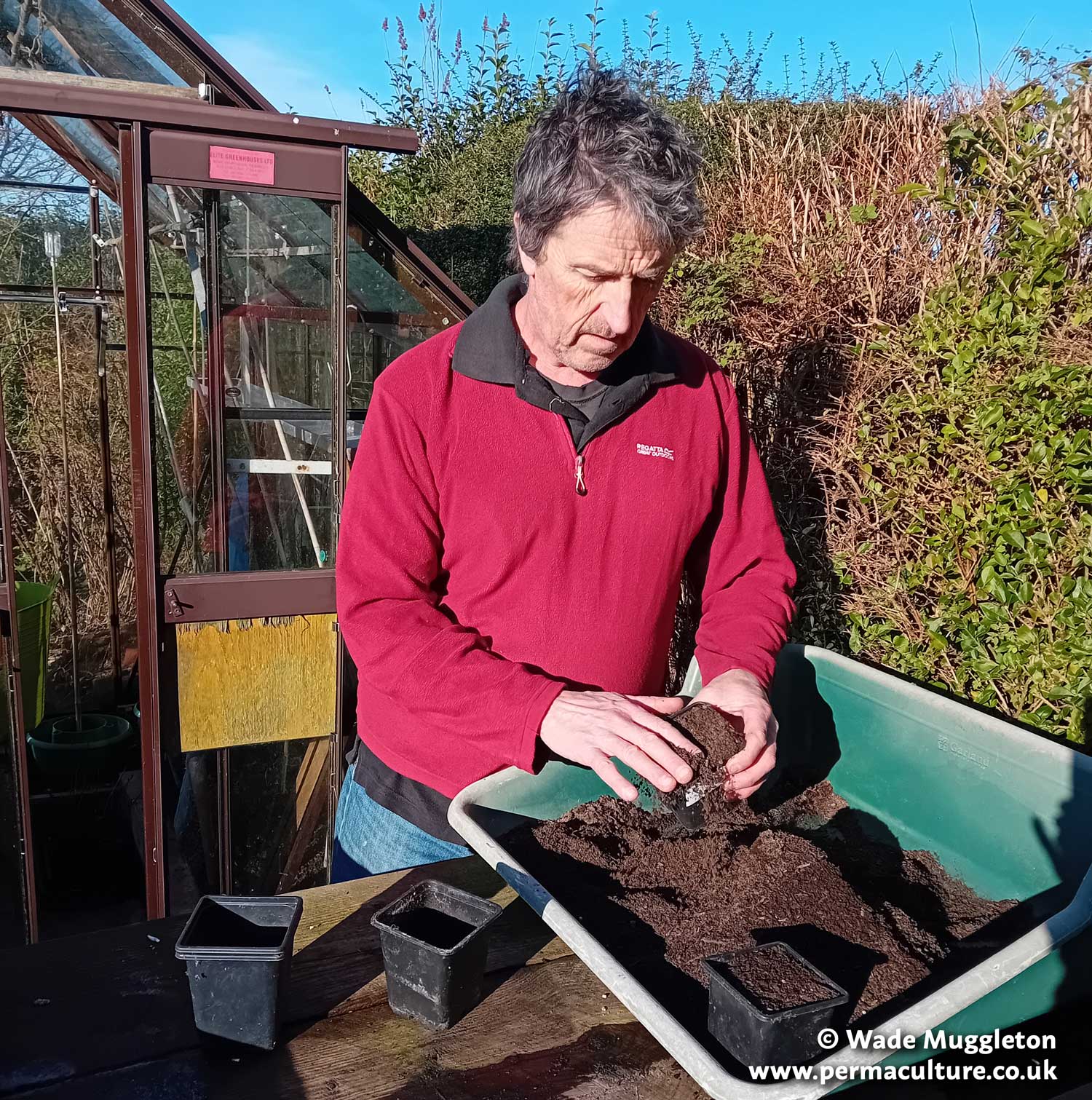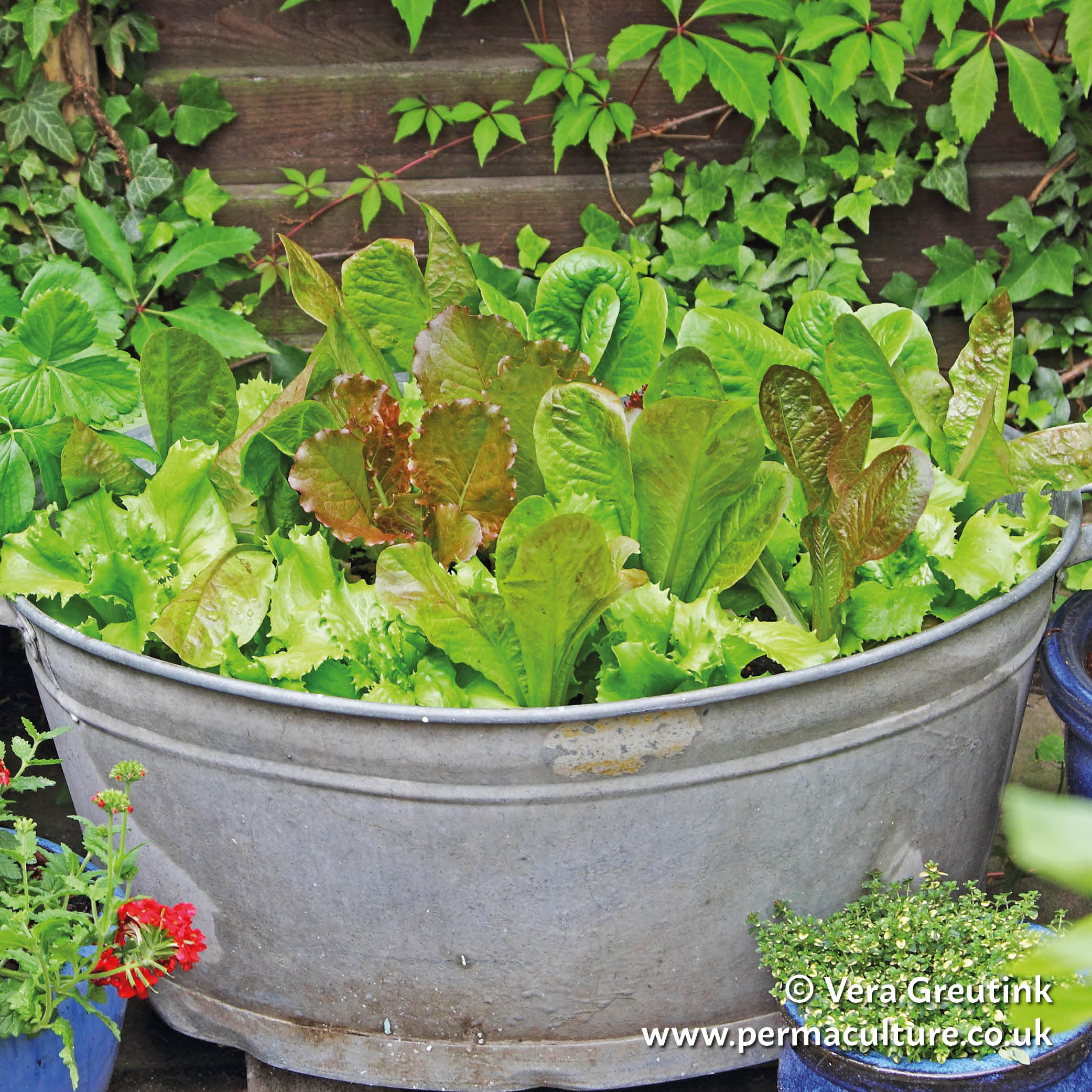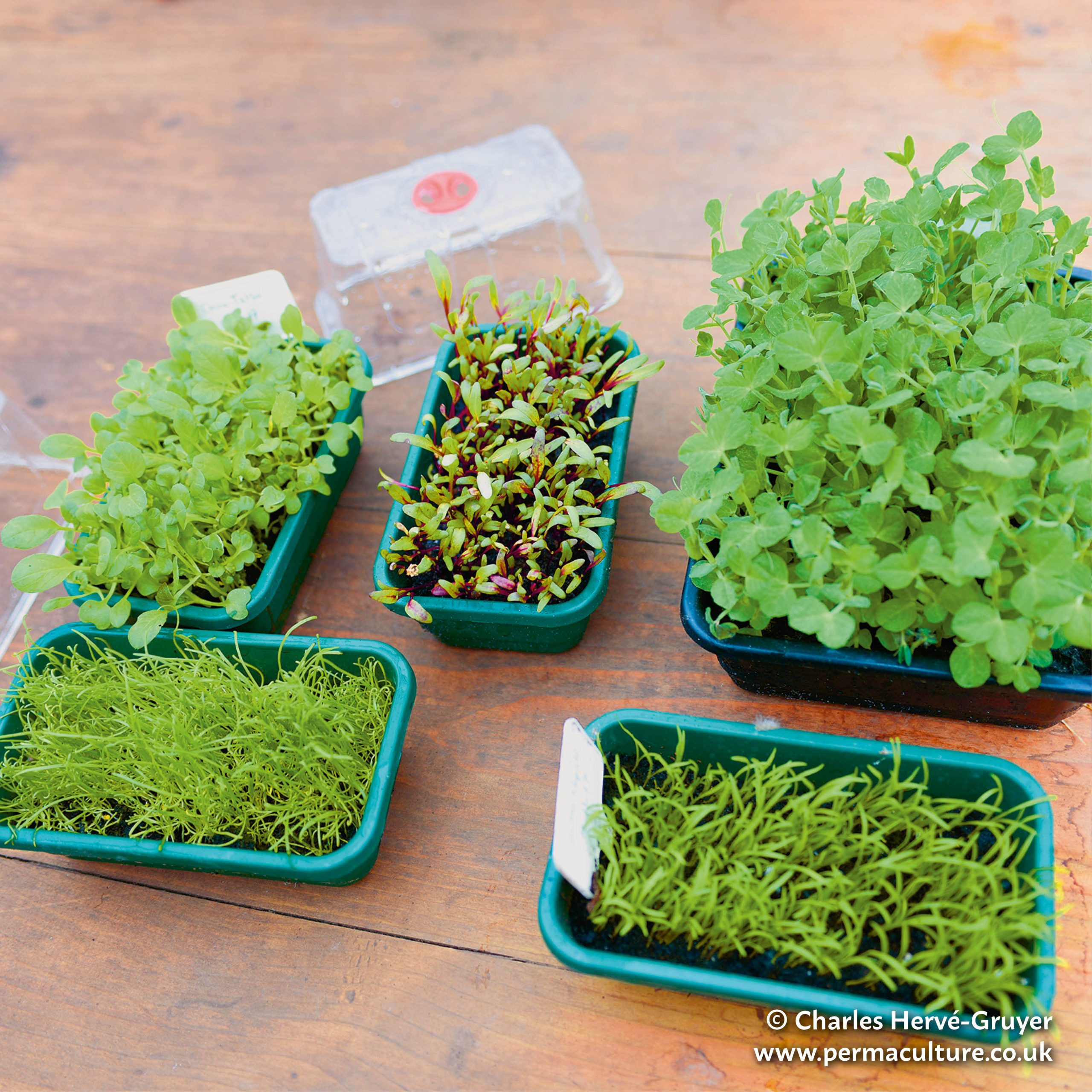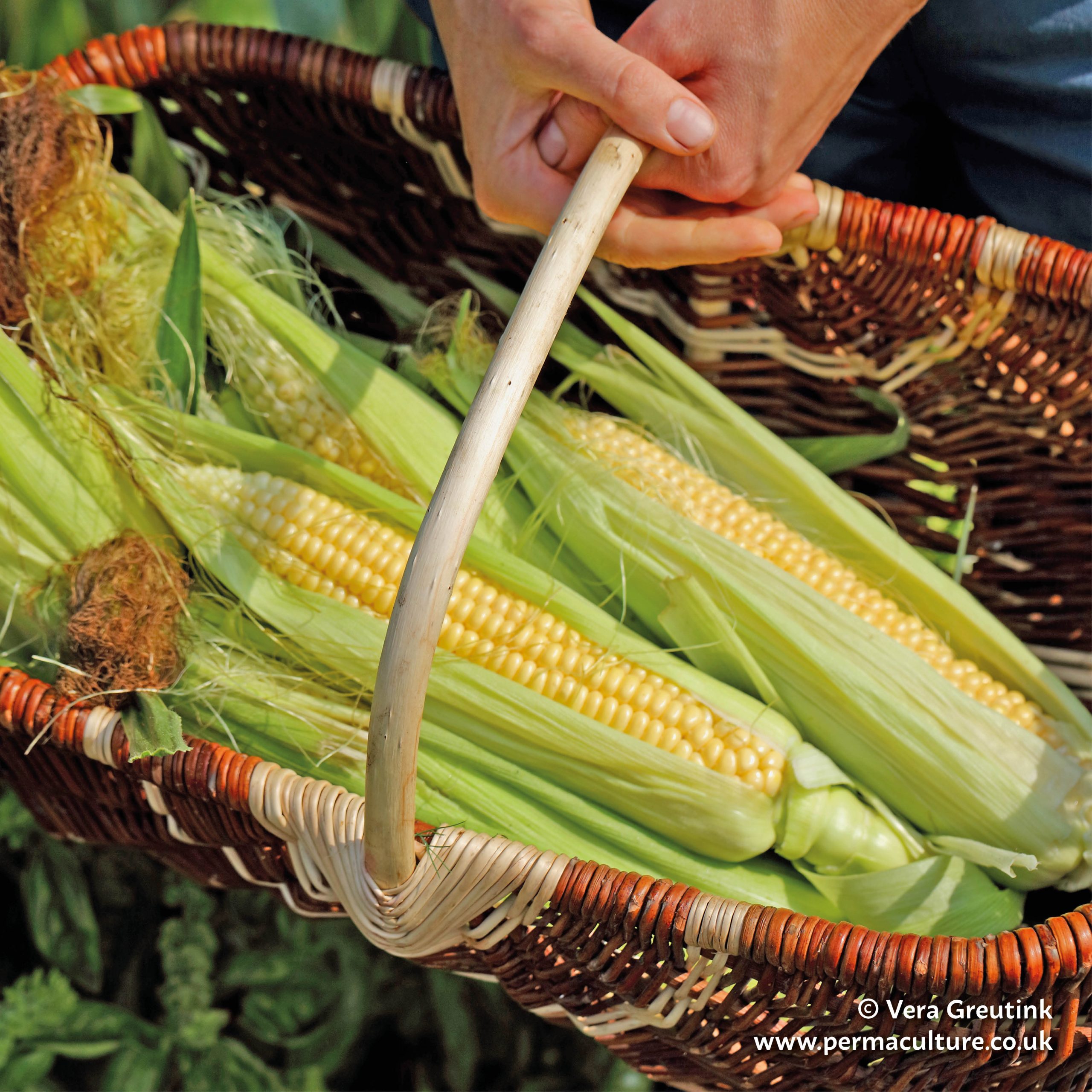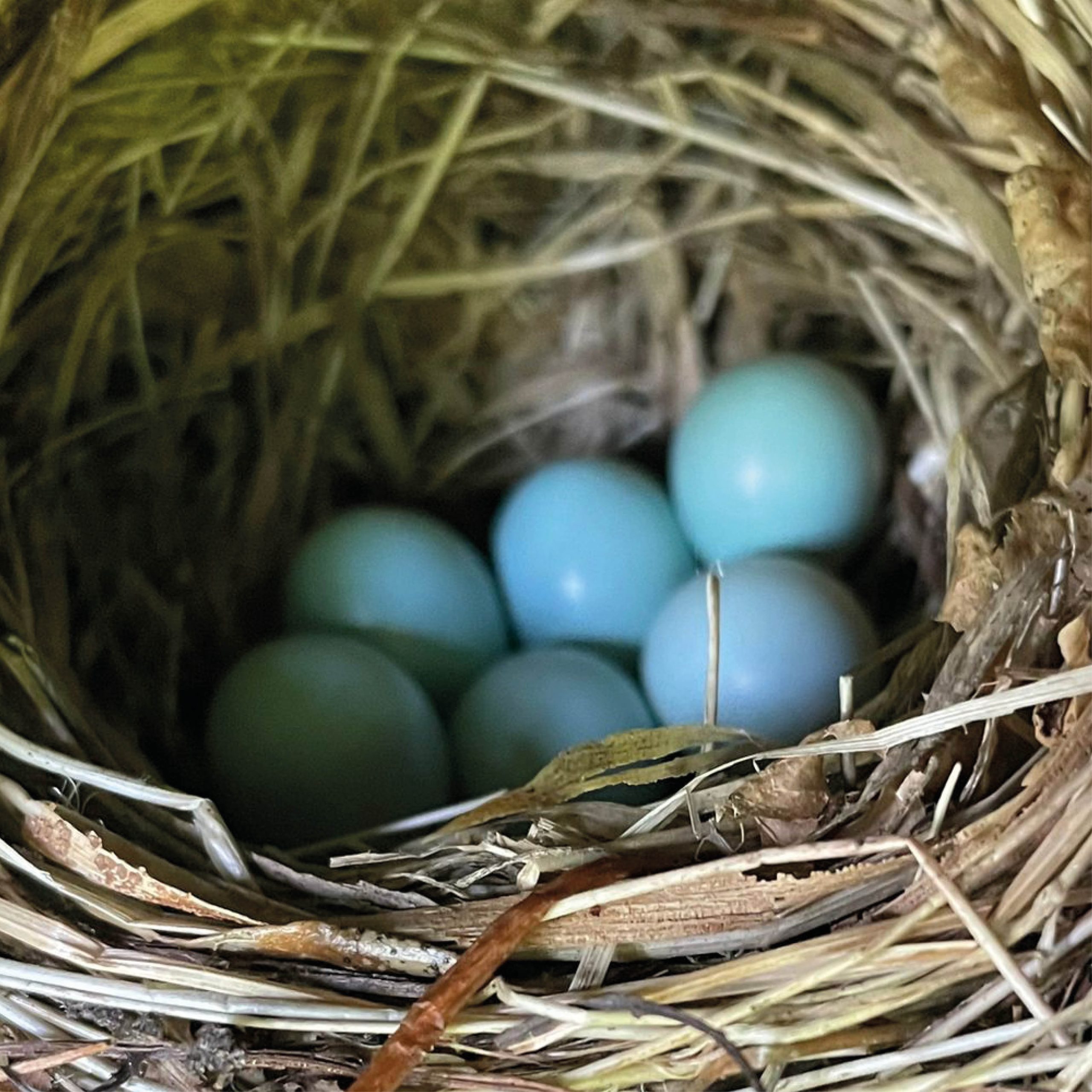As politicians wait, grassroots changemakers are restoring ecosystems and rebuilding resilience. They are living examples that regeneration is not just possible, it’s already happening all over the world.
The Lush Spring Prize 2025 is showcasing this work and has awarded around £250,000 to 19 groups, celebrating regenerative organisations and practitioners from around the world.
Lead image: Clockwise from top left: Agro-Pueblos (Colombia), Ñu’u Ndito (Mexico), Global Ecovillage Network (Global), Land in Our Names (UK)
In a joyous, collaborative and inspiring week of celebrations, the 2025 recipients were honoured as part of a celebratory event held in Dorset (UK), where the Lush Cosmetics company is headquartered. The event was attended by prize recipients, Spring Prize judges, Lush staff, press, funders and other regenerative practitioners.
Co-designed with the prize recipients themselves, the event provides a space to connect, co-learn and share stories of regeneration. It offered an opportunity to explore both the diversity of people and organisations that make up the regenerative movement and the common challenges, learnings and successes that unites it.
Each Spring Prize year sees different themes emerge that are shaped by the organisations that receive a prize. In 2025, these include the importance of weaving ancestral wisdom with scientific approaches; working at multiple scales and legally recognising the rights of nature, and learning from those on the frontlines that are facilitating regenerative work in conflict zones or regions experiencing natural disasters.
In 2025, the backdrop of violence and conflict looms large. Prize recipients from Lebanon and Ukraine are responding to invasions by powerful aggressors, in Myanmar they are working in a context of ongoing internal conflict and many of the Indigenous groups are frequently facing the threat of violence.
The Spring Prize 2025 event allows these groups to come together and share what regenerative work in these situations looks like in a way that may challenge the existing narrative:
“In the context of the ongoing war in Ukraine, the biggest achievement for our organisation is to continue our activities and find ways to be useful for Ukrainian society like creating permaculture public spaces and rehabilitating people in our demonstration centers. The war has taught us that strength is in unity and networks, that autonomous homesteads and farms that grow their own food and preserve their seeds can not only survive but also help other people, and that international support and networks matter.” NGO Permaculture in Ukraine
While humanity witnesses declining biodiversity, climate catastrophes and widespread conflict, these organisations highlight how regenerative practices are not just a source of hope but a necessary and much needed response.
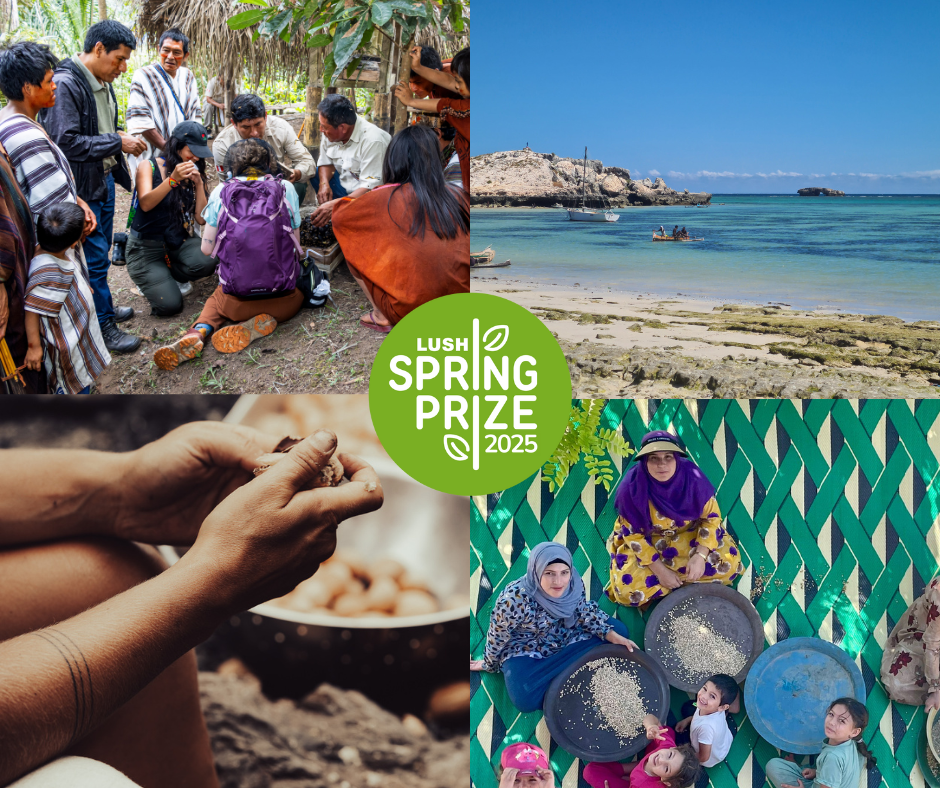
Image: While politicians wait, these groups regenerate. Four recipients of Spring Prize 2025. Clockwise from top left: Amazon Research Internacional (Peru), Natiora Defenders (Madagascar), Buzuruna Juzuruna Association (Lebanon), The Returning Indigenous Corporation (Australia)
The difficult decision of which projects should receive a Lush Spring Prize is made via a deliberative process by the Spring Prize judging panels. You can read more about the judges and their work on the Spring Prize website.
In 2025 Spring Prizes are awarded across seven categories: three based around the age of an organisation – Intentional, Young and Established Awards – and four based on the focus of the organisations work – Influence Award, Influence: Agroecology Award, Indigenous Knowledge and Wisdom Award and Permaculture Magazine Award. The Lush Spring Prize works with a number of collaborative funders to support some of these thematic awards. A complete list of all Spring Prize 2025 recipients and funders can be found below.
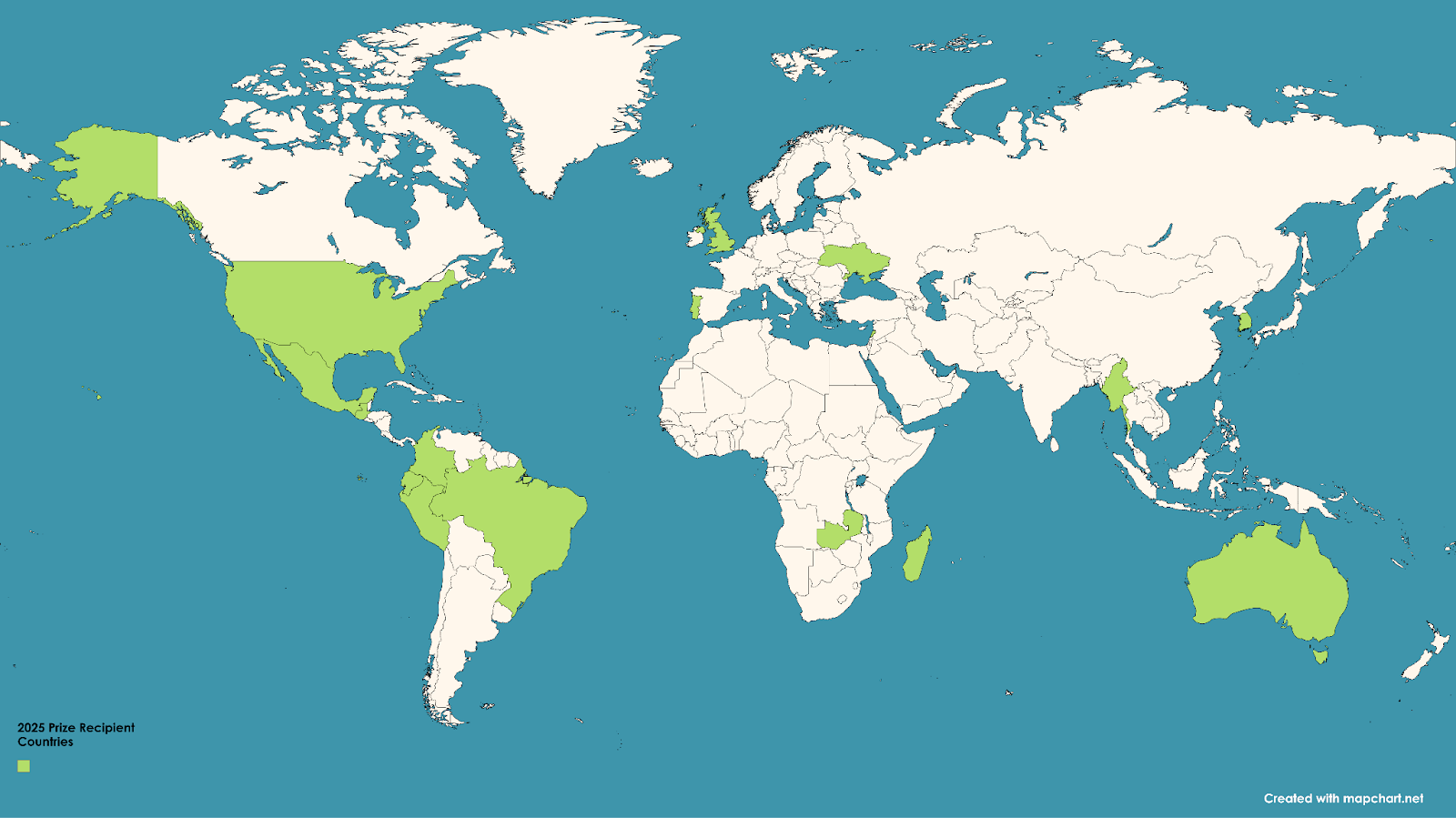
The geographical spread of the 2025 Spring Prize recipients: from Australia, Brazil, Colombia, Ecuador, Guatemala, Lebanon, Madagascar, Mexico, Myanmar, Peru, Portugal, South Korea, UK, US, Ukraine and Zambia. This does not include the Global Ecovillage’s global network which celebrates its 30th birthday this year!
Intentional Projects Award (Joint funded by Lush and the Dixon Foundation)
Agro-Pueblos (Colombia)
Natiora Defenders (Madagascar)
Tender Shoots (Myanmar)
Ubuntu Learning Hub Trust (Zambia)
Young Projects Award (Funded by Lush)
Land in Our Names – LION (UK)
Ñu’u Ndito (Mexico)
The Returning Indigenous Corporation (Australia)
Established Projects Award (Funded by Lush)
Buzuruna Juzuruna Association (Lebanon)
Global Ecovillage Network (Worldwide)
Influence Award (Funded by Lush)
Huaynakana Kamatahuara Kana (Peru)
Influence: Agroecology Award (Funded by the Agroecology Fund)
Amazon Research Internacional (Peru)
Glasbren CIC (Wales, UK)
Ancient and Indigenous Wisdom Award (Funded by Be The Earth Foundation and Savitri Trust)
Assentamento Terra Vista (Brazil)
Organizacion Ecologica Sol y Verde (Guatemala)
The Cultural Conservancy (US)
Permaculture Magazine Award (Funded by Permaculture magazine)
Battmung (South Korea)
Eco Centro Allpa Tarpuna (Ecuador)
HortaFCUL (Portugal)
NGO Permaculture in Ukraine (Ukraine)
Information about all 2025 Spring Prize recipients (and the shortlist) can be found on the Spring Prize website or by clicking on the hyperlinks above.
Examples of this year’s awarded projects include:
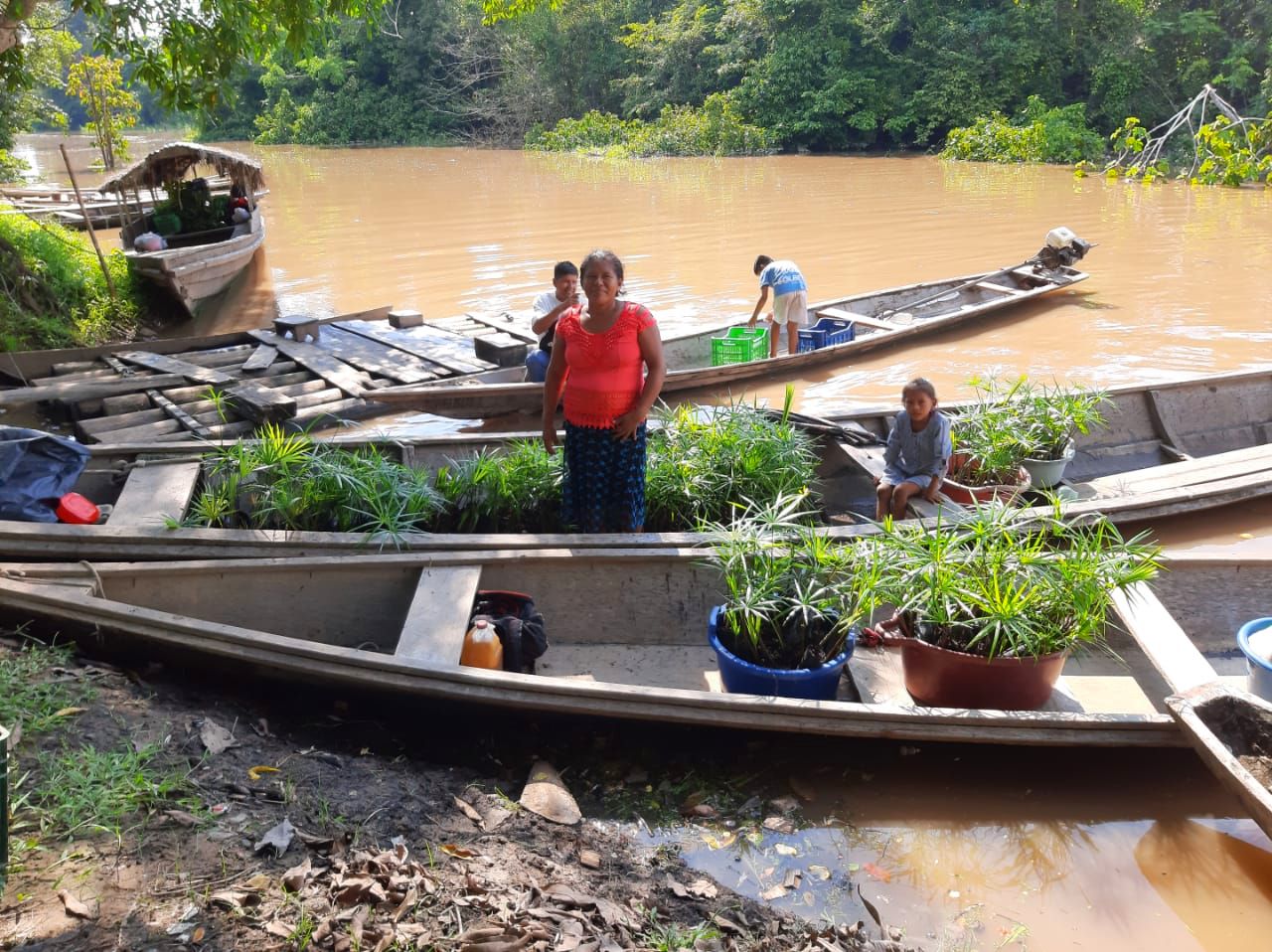
Aguaje palm tree seedlings were distributed among Kukama families in Parinari, Loreto, Peru, as part of the reforestation and conservation initiative led by Huaynakana.
Extractivism represents a constant threat to the Kukama territory in Peru and the loss of the Kukama peoples’ cultural identity. Huaynakana Kamatahuara Kana exists to protect this.
The Kukama people conceive of the territory as a whole and women having an intrinsic connection to it. The term ‘kukama’ for example is composed of two words: ‘ku’ meaning ‘field’ and ‘kama’ meaning ‘bosom,’ and it signifies ‘field-bosom’ or ‘nourished by the field.’ Given the Kukama peoples’ lives are reliant on the forest ecosystems of the lower basin of the Marañón River, and considering how they have adapted and coexisted with them for decades, the territory and the rivers are inseparable from their culture and way of life. They consider the rivers to be living beings with spirits, and therefore sacred.
Founded in 2001, Huaynakana Kamatahuara Kana embarked on a long journey of collective actions, protests, and mobilisations in pursuit of environmental justice as the river’s health declined as a result of extractive industries.
In September 2021 Huaynakana filed a constitutional lawsuit to urge Peru to recognise the Marañón River as a living being and subject of rights. In March 2024, the provincial court of Nauta ruled that the Marañón River has intrinsic rights, including the right to flow, to be free from pollution, and to be restored to environmental health. This decision also recognised Indigenous communities as the river’s legal representatives, defenders, and guardians. This landmark ruling was ratified by the higher court last November.
Huaynakana plays a key role in defending the Marañón’s rights and supporting the regeneration and conservation of the waterways through reforestation efforts because without the river, these unique forests cannot exist.
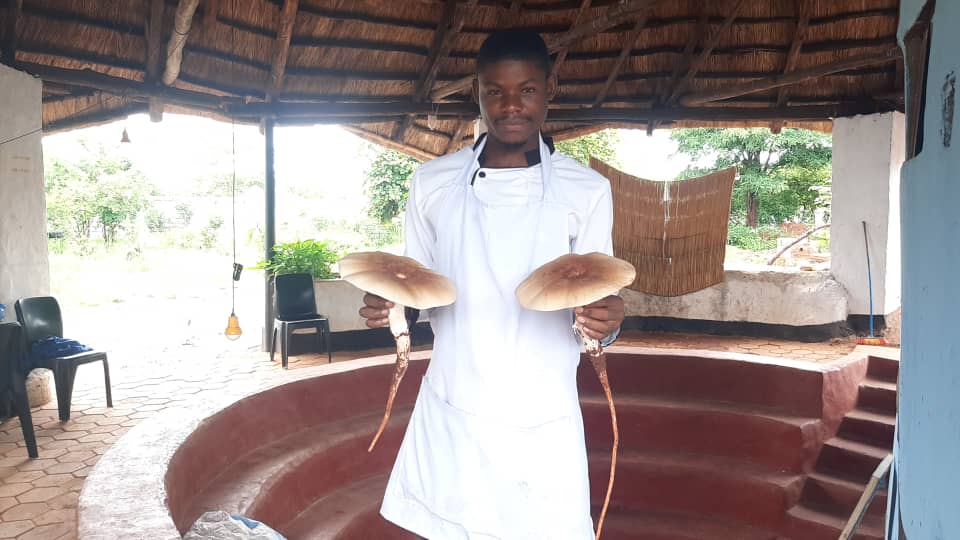
Mushrooms harvested from the Ubuntu food forest
Ubuntu Learning Hub Trust was set up in 2022 with a mission to support people who are in transition towards more resilient futures and a healthier planet.
The Trust immediately began to set up the Ubuntu Learning Centre as an open learning space for all ages as well as a demonstration centre for integrating technologies that are in tune with a healthy Mother Earth.
The learning centre sits on a two-hectare site in Chikancila village in Chongwe district of Lusaka Province of Zambia. It is founded on the African philosophy of Ubuntu which helps people to learn what it means to be truly human. It hosts people from all walks of life who are looking for pathways to escape the rat race and curve more sustainable futures for themselves, their families and the communities where they come from.
The Trust uses agro-ecological practices to regenerate the degraded farmland that was damaged over decades of poor land husbandry. For example, the Farmer Managed Natural Regeneration (FMNR) technique has helped to restore much of the indigenous vegetation on the land.
People come to Ubuntu to explore the meaning of life and to find their life purpose. They stay at Ubuntu for varying lengths of time and in the process they are engaged in intercultural exchanges as well as learning how to take care of themselves and of Mother Earth. The Trust offers life changing experiences rather than certificates and the opportunity to carve out an earth-centred worldview for themselves.
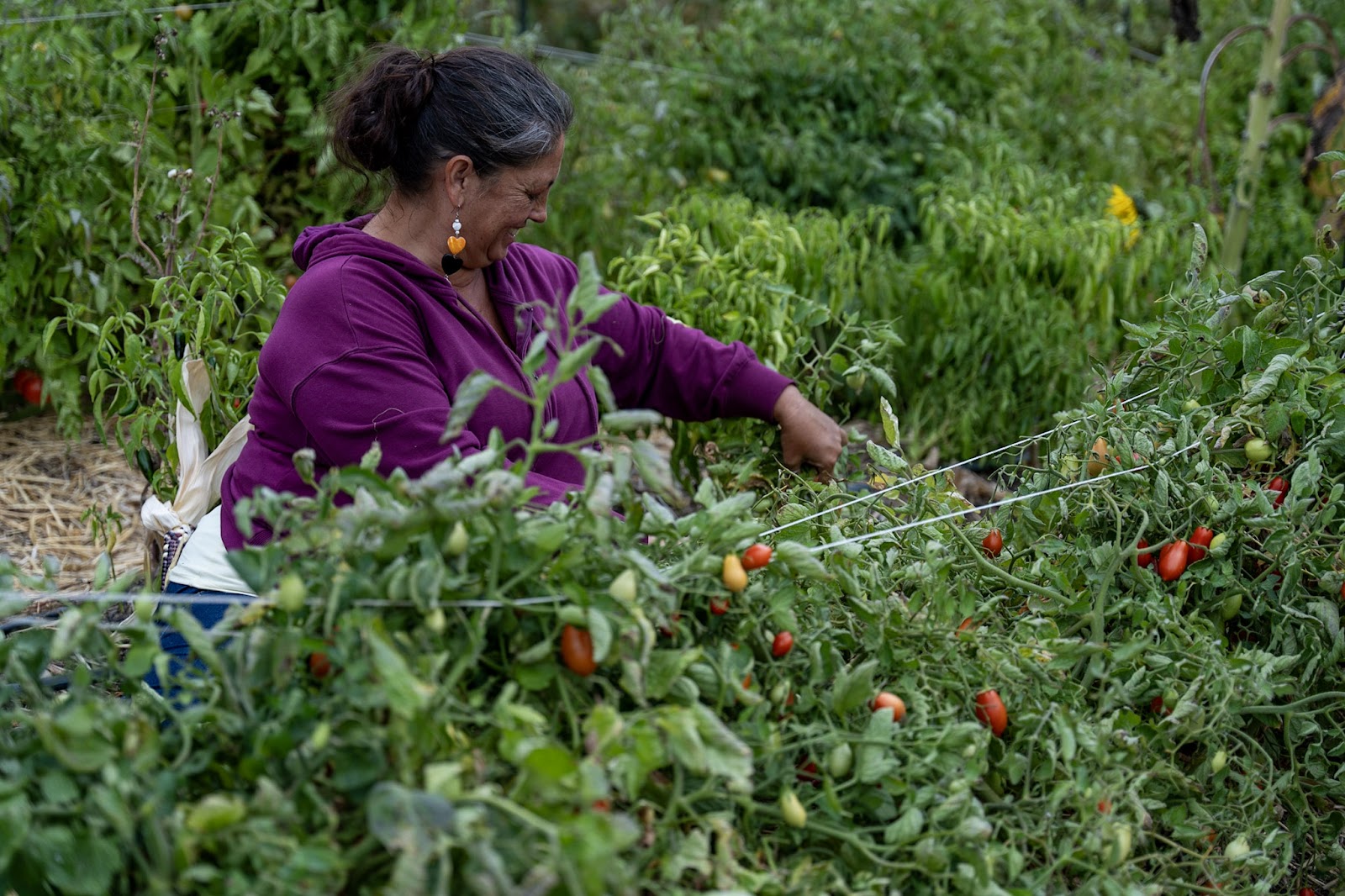
The Cultural Conservancy (TCC) Farm Manager, Amythest Faria, at TCC’s land project Heron Shadow, collecting an early fall harvest.
The Cultural Conservancy (TCC) is a Native-led non-profit organisation based in San Francisco, California. Founded in 1985, its mission is to protect and revitalise Indigenous cultures through the direct application of traditional knowledge and practices on ancestral lands.
It works with Native/Indigenous peoples locally and globally on community-based projects that are shaped by community requests and guided by the Native Advisory Council of Traditional Knowledge Holders, land-care practitioners, and community leaders. From language revitalisation and traditional carving projects to Indigenous agricultural sciences and traditional land tending, critical to its work is the acknowledgement of the sacred relationship Native peoples have to their lands and waters and the importance of this relationship to their physical, mental, and community health.
Through its flagship Native Foodways Programme and its land project Heron Shadow, it:
Battmung was founded to create a sustainable permaculture village in South Korea where young people can thrive and learn about permaculture design.
It seeks to ensure the survival of the village, which is at risk due to an ageing population. Through permaculture, Battmung aims to bring its village back to life. It offers a 72-hour Permaculture Design Course (PDC) to youth and those who go on to become active designers stay connected through the Battmung Friends group.
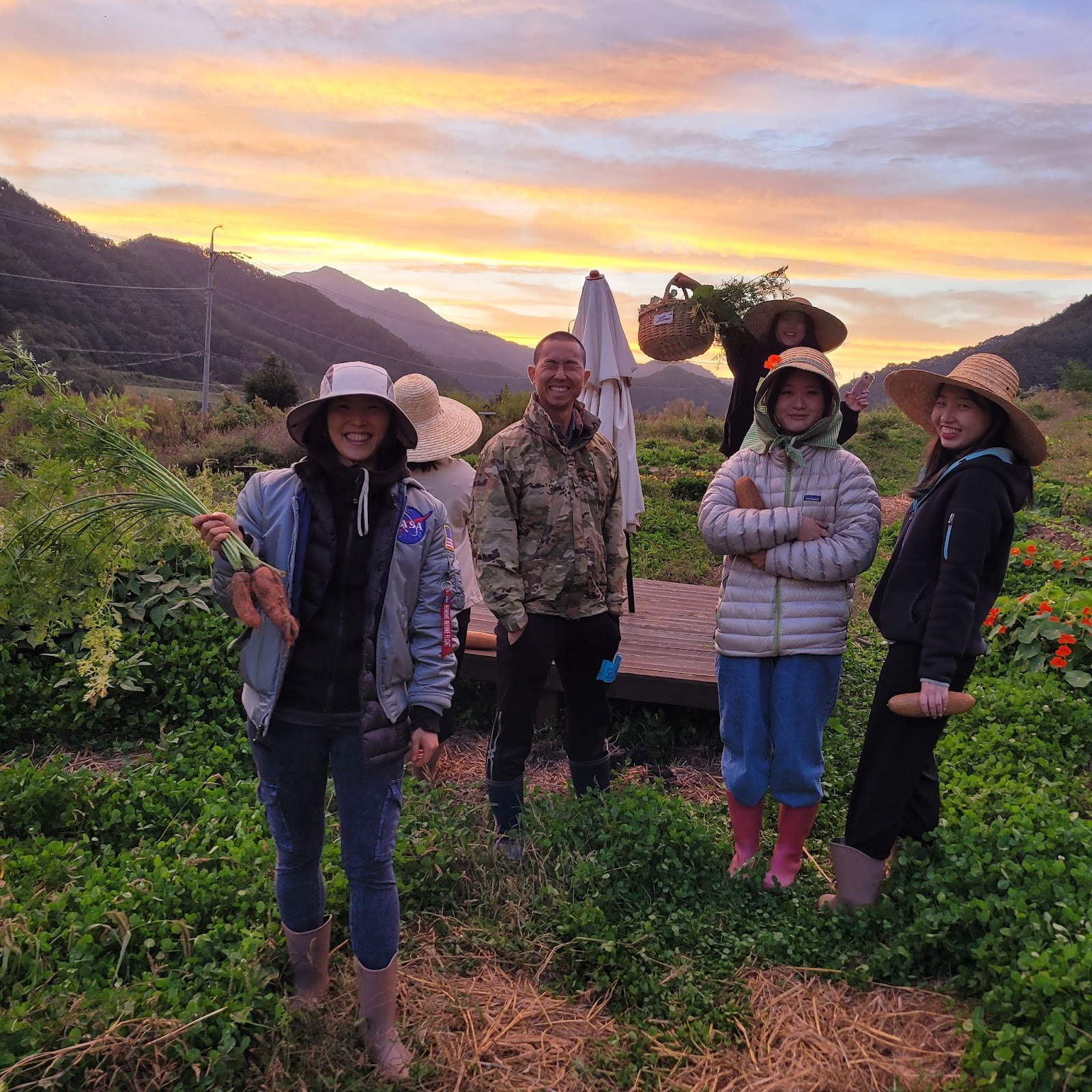
Harvesting with Battmung friends
The LUSH Spring Prize is a joint venture between LUSH Cosmetics and Ethical Consumer and is now in its sixth prize cycle, having started in 2017. The Spring Prize has distributed more than £1.3 million to regenerative projects worldwide.
The LUSH Spring Prize was set up to support ‘regenerative’ projects – those that go beyond sustainability by taking holistic approaches to building the health of ecology, economy and social systems. It seeks to support those who are leaving the world lusher than they found it, and are actively restoring all the systems they are part of.
By supporting regenerative projects the Spring Prize hopes to raise the profile of the movement as a whole to inspire more individuals, groups, communities, funders, media platforms and businesses to start engaging with regenerative processes.
The Spring Prize judging panels are made up of people drawn from a diverse range of movements that represent regenerative design, permaculture, food sovereignty, transition towns, biomimicry, eco-village networks and various social justice movements. Each prize cycle a ‘Lush Customer Judge’ and ‘Lush Staff Judge’ are also selected to act as additional independent members of the judging panel.
The collaborative prizes have separate panels, which also include judges from the main Spring Prize panel. The majority of the judging panel for the Indigenous Knowledge and Wisdom Award self identify as Indigenous themselves, some being previous recipients of the award.
The judges are not just involved in choosing the recipients but are involved in shaping the prize as a whole, attending the event and connecting with prize recipients. You can read more about the judges here: Spring Prize Judging Panel.
£30,000 Permaculture Magazine Prize Celebrates Climate Change Solutions (2019)
Celebrating Grassroots Communities: hope and solutions in the face of collapse
The Permaculture Magazine team have been publishing books and magazines since 1992.
Their YouTube channel www.youtube.com/PermacultureMagazine shares a range of videos from no dig organic gardening and food forests, to regenerative farming and keeping bees.

